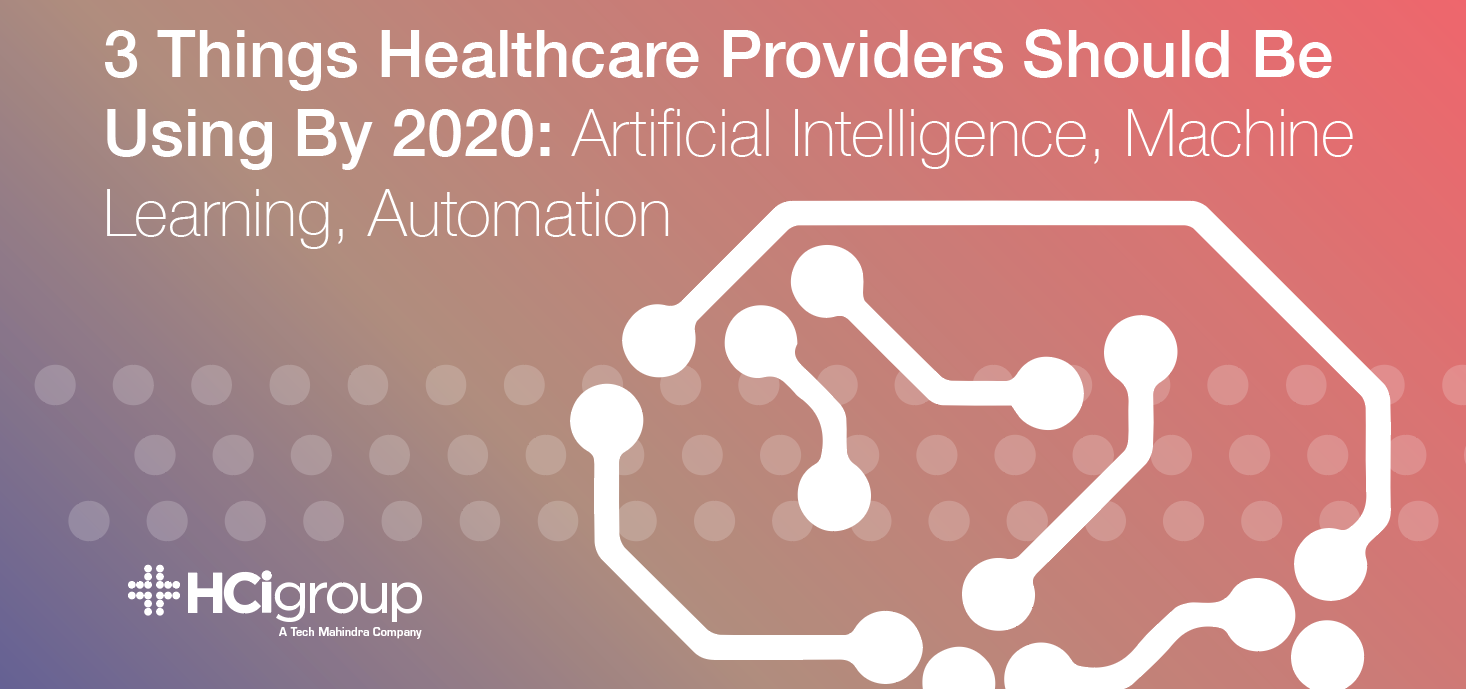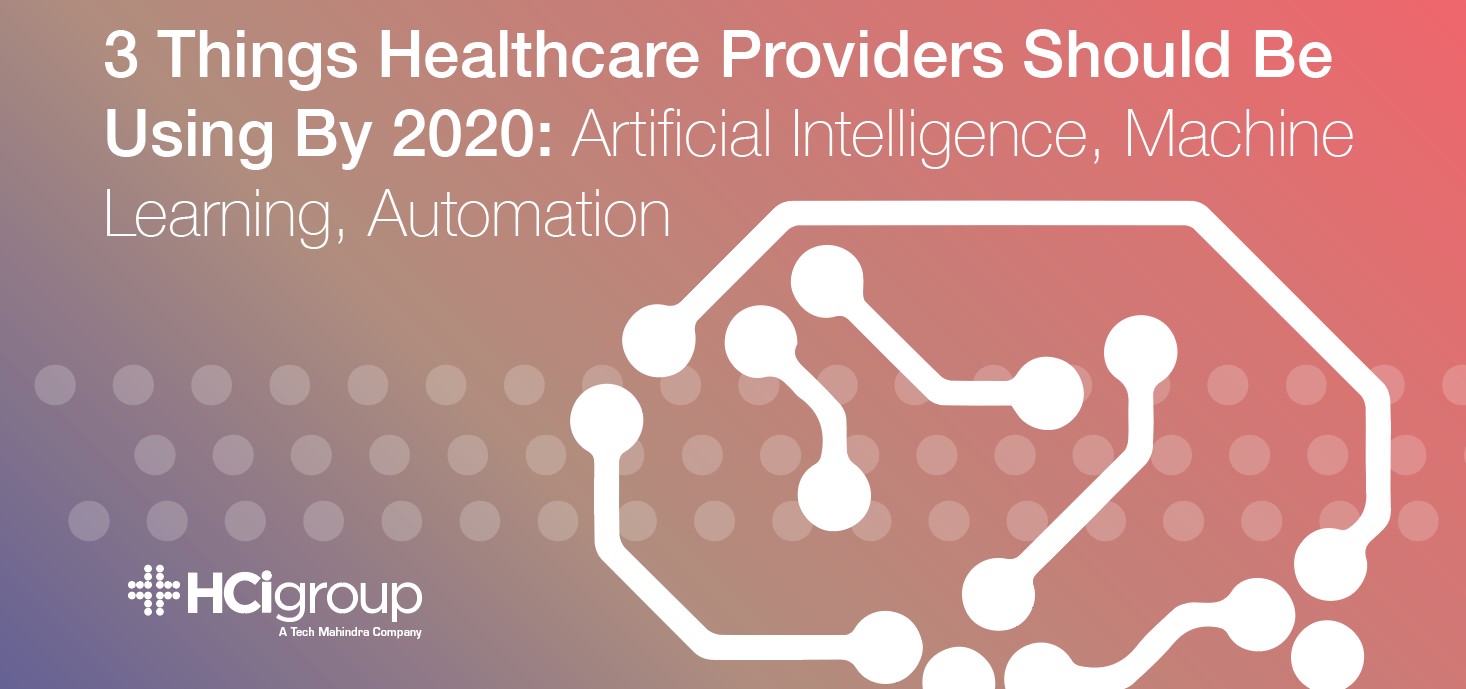3 Things Healthcare Providers Should Be Using By 2020: Artificial Intelligence, Machine Learning, Automation

 Contrary to popular belief, artificial intelligence and machine learning technology is not currently capable of destroying humanity as we know it. Artificial intelligence (AI), machine learning (ML), and automation in all its forms could, however, serve as the most powerful tools in our toolbelt in the world of healthcare IT. These technologies help us to manipulate, interpret, and manage data in ways we never could.
Contrary to popular belief, artificial intelligence and machine learning technology is not currently capable of destroying humanity as we know it. Artificial intelligence (AI), machine learning (ML), and automation in all its forms could, however, serve as the most powerful tools in our toolbelt in the world of healthcare IT. These technologies help us to manipulate, interpret, and manage data in ways we never could.
Clinical Alert Analytics
AI, machine learning and automation have the potential today, not in some far away future, to significantly impact the clinical care environment. These technologies can help physicians and clinicians to provide efficient and effective care. Clinicians are frequently flooded with information. Patient monitoring devices often create alarm/alert fatigue among nursing staff, which consequently poses a patient safety risk. Utilizing machine learning and artificial intelligence, healthcare organizations can better understand and appropriately response to the clinical care environment. By gaining insights into something like nurse response time relative to patient population, clinical leadership can reallocate nursing staff on the floor. Clinical alert analytics will influence increased productivity of nursing staff and help shape what nursing best practices look like in the future.
Revenue Cycle Automation
Much of the coding, billing, and scheduling processes have the potential to be automated or otherwise robotically/digitally managed. An automated call or text reminder system for appointments decrease the number of no-shows and increase a physician’s daily productive output. Robotic process automation (RPA) through artificial intelligence, machine learning, and automation could potentially optimize the revenue cycle in ways that expedite and structure the process of getting paid. RPA has the potential to impact the revenue cycle end to end. Human error and inefficiencies in the way of coding and billing are common place. Bots can be deployed to perform routine, repetitive tasks which often include tying various workflow systems together. Providers can utilize these emerging technologies to maximize profits and optimize revenue cycle processes.
Cybersecurity Battle Field
The cyber security landscape is ever-changing. This is truer in healthcare than in any other industry. A patient health record is significantly more valuable on the black market than any credit card information. This makes healthcare organizations top targets. Healthcare organizations are at an impasse. As cybersecurity becomes a more recognized priority, there is a notion of investing in capabilities, having the best tools. Capabilities are only relevant if there are means to utilize them. In most cases, volume of security staff is the limiting factor. With the evolution of these technologies, security staff’s utilization can be augmented and optimized by AI, ML, and automation.
Behavior Analytics
Insider threat accounts for 37% of the activity to which could be categorized as malicious on a network. Most cybersecurity breaches are executed by or through trusted individuals or devices inside an organization, intentionally or otherwise. Behavioral analytics uses machine learning and artificial intelligence to aggregate and contextualizes risk in the connected environment. These processes have the potential to increase the utilization dramatically.
Predictive Analytics
We have the means to simulate, learn from, and prevent threats. Increasing technology is allowing organizations to be proactive in the way they understand threat. Many security tools like anti-virus are reactive in nature and do not give holistic insights necessary to build strong security practices. Healthcare providers should be arming their security teams with the right tools to prevent these cyber criminals from entering the system beforehand. With utilization as the limiting factor, it is paramount to use artificial intelligence and machine learning to maximize the functional capacity of your security team.

